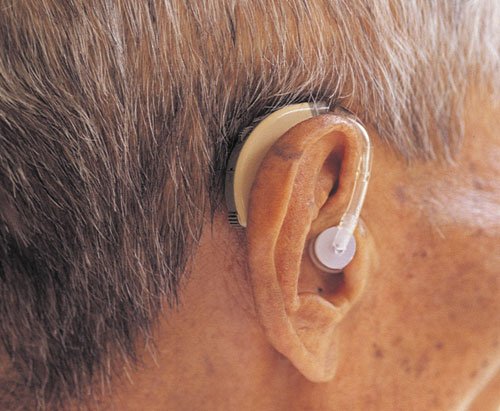Alfred met his wife while traveling around Europe with his
parents who were circus performers. He loved to play the piano and
he was getting ready to move to Florida and live with his son and
daughter-in-law.
Alfred met his wife while traveling around Europe with his parents who were circus performers. He loved to play the piano and he was getting ready to move to Florida and live with his son and daughter-in-law. I had the pleasure of meeting 85-year-old Alfred while I was volunteering at a senior center. Alfred had so much to share and so much to say, but he couldn’t hear a thing.
His hearing aid didn’t work. We tried to use an “auditory assistant” apparatus, but that didn’t work either. One day I flipped over his paper placemat and began writing to him. I offered him the pen anticipating that he would write back. I was surprised when Alfred responded verbally; his voice was loud, his words were clear and his responses were quick. Everyone at the center just assumed he didn’t talk – they were wrong.
Around age 45, most of us may begin to experience age-related hearing loss. Over the years, the loss becomes greater. The cause? Presbycusis. Jon Nussbaum, author of “Communication and Aging,” reports people suffering with presbycusis describe speech as sounding “fuzzy,” with the words seeming to run together.
Nussbaum discusses the difference between primary and secondary aging changes. Primary aging is the physical changes that are inevitable in the aging process. Secondary aging is the non-inevitable, age-related deterioration caused by environmental damage.
Presbycusis is an example of primary aging; it is unavoidable. Its onset however, can vary from person to person. Hearing impairments due to external forces – like serving in the armed forces – are characteristic of secondary aging. Constant or repetitive exposure to loud music, machinery, sirens and the like will eventually cause hearing impairments. Utilizing earplugs or other protective devices can protect us from the occurrence of secondary aging changes in our hearing.
I was surprised to learn of another secondary origin of hearing loss: other medical conditions. WebMD reports that while heart disease, stroke, high blood pressure and diabetes do not affect the ear directly, they may cause interruption of the blood flow to the inner ear or parts of the brain that control hearing.
Regardless of its cause, hearing loss can have negative effects on one’s life and relationships.
Since Janet Belsky, author of the “Psychology of Aging,” reports that 4 in 5 Americans with hearing problems are over the age of 45, it is likely that you know someone struggling with such a loss. You just might not know that they are suffering. Belsky says many people are reluctant to admit they have difficulty hearing.
So, put your “communication antennas” up and tune in to what is happening in your conversations. Your understanding and involvement may help those with hearing loss acknowledge they have a problem.
Visit WebMD (www.webmd .com/hw-popup/hearing-self-test) and explore the self test questions or do the test together with a loved one. Consider your interactions with elderly friends or family members; these questions may give you an idea of what they are experiencing during a typical conversation.
Nussbaum, Belsky and WebMD all indicate that hearing loss can lead many to become frustrated, insecure, withdrawn or lonely. Frustration may arise because others are perceived as mumbling. A lack of confidence arises from constantly asking others to repeat themselves. Feelings of hopelessness may arise because conversations become so difficult, “what’s the use?”
So, what can we do to help ourselves and others?
For those of you who haven’t admitted that you are experiencing hearing loss, in the words Elizabeth Gilbert, author of “Eat, Pray, Love:” Tell the truth, tell the truth, tell the truth. Help us help you. My mom told me that she has trouble hearing out of her right ear, so now know to sit on her left.
Have your hearing checked regularly. Consider using hearing aids or other assistive listening devices. Many people are embarrassed to wear hearing aids, but isn’t it better than struggling for the next 20 or 30 years? Try to eliminate background noise. Keep in mind that high ceilings, tiled floors, loud televisions and droning air conditioners are all problematic. Face the person when you are speaking, slow your rate of speech, enunciate your words clearly and be patient.
If none of that seems to work, as was the case with Alfred – flip a paper placemat over, grab a pen and begin writing. Make an concerted effort and attempt to conquer the inevitable obstacles that come with aging.













